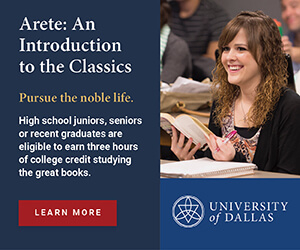Recently on The Patrick Madrid Show, Carol called in to ask Patrick what the differences are between a Christian, non-Catholic baptism and a Catholic baptism.
Carol’s daughter and her husband have one child and one on the way. After the birth of their first, they had their child baptized in the Catholic Church. But since then, they have joined a non-denominational church at the behest of the husband. Even though Carol believes her daughter would still be in the Catholic Church if it wasn’t for her husband, she thinks that to avoid friction and rift within the family, her daughter has gone along with it. After some time, she has grown to like the non-denominational church because of how much she has learned about the faith.
Upon Carol asking her daughter if she plans to baptize her second child Catholic or not, she admitted she didn’t know what to do. Carol asked for Patrick’s guidance in what exactly the differences are between the baptisms and how she can assist her daughter in making the right decision.
Patrick began by explaining that a valid Christian baptism is a valid Christian baptism: As long as the correct form and the correct matter are used, and the intention is there, then that baptism into Christianity is valid. The correct form is the recitation of the words, “I baptize you in the name of the Father, and of the Son, and of the Holy Spirit.” There is to be no deviation from this formula, otherwise it may be invalid, as we saw for those thousands in Phoenix last year.
The matter of baptism is the water used to purify the person being baptized. They cannot use oil or wine or any other liquid. It must be water. They may either be immersed in it, or the water may be poured over their head. As long as it is water that is used, the matter of that baptism is valid.
“So there really is no difference between a baptism in a non-denominational church and a Catholic church. What the non-denominational people don’t realize is that they’re making use of a Catholic sacrament. And that’s okay,” said Patrick. “We wish that they were doing so within the structure of the Catholic church, because that is its natural habitat, but it has the same effects. It’s not a lesser baptism, it’s not less effective or less spiritual. It has the same effects on the soul.”
However, said Patrick, it is after baptism where the problems in a non-denominational church begin to arise. A validly baptized person has the right, and in another sense an obligation, to receive the other sacraments of initiation. They have a right to, at the very least, receive the Eucharist and to be confirmed in the Church.
As advice for guiding her daughter in what she ought to do for her child, Patrick recommended to Carol two resources for mothers in situations like this: an article he wrote many years ago called Guess What, Mom that explores the dialogue between a Catholic mother and a daughter who has left the faith for a non-denominational church, and Surprised by Truth, a book that offers the biblical and historical reasons for the conversion of 11 people.
Patrick left Carol with one last piece of advice: “There are four different volumes [of Surprised by Truth]. You want the first one. And I would give it to her. I would absolutely give it to her and say, ‘Honey, if you’re going to leave the Catholic Church, I hope you will at least take a few minutes to look at what you’re leaving.’”
Tune in to The Patrick Madrid Show weekdays 8am – 11am CT


